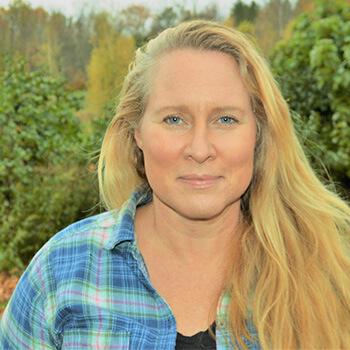81 Carrigan Dr
220L Aiken Center
Burlington, VT 05401
United States
- Ph.D. 2004 Earth and Ecosystem Science, University of New Hampshire
- M.S. 1998 Natural Resources, University of New Hampshire
- B.A. 1993 Environmental Science: Terrestrial Ecology, University of Virginia
- B.A. 1993 Spanish, University of Virginia
BIO
My research is cross-disciplinary with the goal of scaling field observations and relationships to a landscape-scale using remote sensing and GIS (geographic information system) tools to inform the management of northeastern forests. Often this involves working across scales (temporal and spatial), data sources (field, satellite, spatial) and integrating across disciplines. This linking of geospatial and natural science methodologies provides the landscape perspective necessary to mitigate the impacts of environmental stressors, with the information necessary to guide activities at local to regional scales. Ongoing projects range from the development of novel techniques to map forest structure, phenology, health and growth to the creation of an interactive, multi-criterion decision support tool to inform sustainable management of the region’s forests.
Much of this work is done in collaboration with the USDA Forest Service Northern Research Station, USDA Forest Service Northeastern Area State and Private Forestry and collaborators at the Vermont Agency of Natural Resources and the Forest Ecosystem Monitoring Cooperative for which I am Principal Investigator.
Courses
- Introduction to Environmental Sciences
- Orientation to Environmental Sciences
- Applied Environmental Statistics
- Remote Sensing of Natural Resources
Area(s) of expertise
Instructional programs: Environmental Sciences; Forestry; Natural Resources; Sustainability, Ecology and Policy
Research: Forest ecology & health, satellite remote sensing, GIS modeling, experimental design & statistical analyses
Bio
My research is cross-disciplinary with the goal of scaling field observations and relationships to a landscape-scale using remote sensing and GIS (geographic information system) tools to inform the management of northeastern forests. Often this involves working across scales (temporal and spatial), data sources (field, satellite, spatial) and integrating across disciplines. This linking of geospatial and natural science methodologies provides the landscape perspective necessary to mitigate the impacts of environmental stressors, with the information necessary to guide activities at local to regional scales. Ongoing projects range from the development of novel techniques to map forest structure, phenology, health and growth to the creation of an interactive, multi-criterion decision support tool to inform sustainable management of the region’s forests.
Much of this work is done in collaboration with the USDA Forest Service Northern Research Station, USDA Forest Service Northeastern Area State and Private Forestry and collaborators at the Vermont Agency of Natural Resources and the Forest Ecosystem Monitoring Cooperative for which I am Principal Investigator.
Courses
- Introduction to Environmental Sciences
- Orientation to Environmental Sciences
- Applied Environmental Statistics
- Remote Sensing of Natural Resources
Areas of Expertise
Instructional programs: Environmental Sciences; Forestry; Natural Resources; Sustainability, Ecology and Policy
Research: Forest ecology & health, satellite remote sensing, GIS modeling, experimental design & statistical analyses
